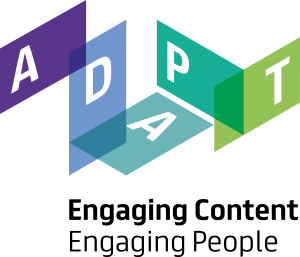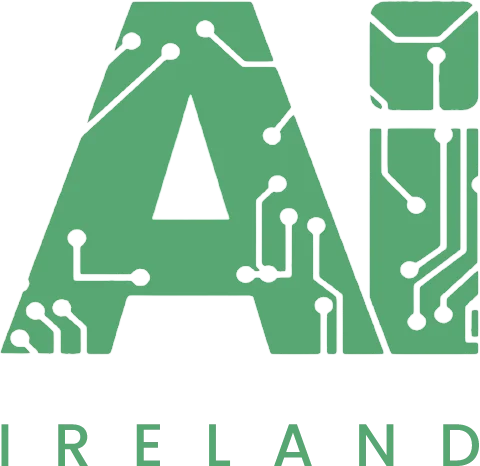SFI ADAPT Centre

Nominated Award:
Best Application of AI in Healthcare
Website of Company:
www.adaptcentre.ie
ADAPT is the world-leading SFI research centre for AI Driven Digital Content Technology hosted by Trinity College Dublin. ADAPT’s partner institutions include Dublin City University, University College Dublin, Technological University Dublin, Maynooth University, Munster Technological University, Athlone Institute of Technology, and the National University of Ireland Galway. ADAPT’s research vision is to pioneer new forms of proactive, scalable, and integrated AI-driven Digital Content Technology that empower individuals and society to engage in digital experiences with control, inclusion, and accountability with the long term goal of a balanced digital society by 2030. ADAPT is pioneering new Human Centric AI techniques and technologies including personalisation, natural language processing, data analytics, intelligent machine translation human-computer interaction, as well as setting the standards for data governance, privacy and ethics for digital content.
Reason for Nomination:
Personalised Medicine by Predictive Modeling in Stroke for better Quality of Life Stroke is one of the most severe medical problems with far-reaching public health and socio-economic impact, gathering momentum in an ageing society. The SFI ADAPT Centre at the Technological University of Dublin has partnered with the Charité – Universitätsmedizin Berlin for an EU funded research project named PRECISE4Q, a study which aims to utilise machine learning software to tailor the acute treatment, rehabilitation, and prevention of strokes for each patient.
Led by Professor John Kelleher, the successful H2020 project, Personalised Medicine by Predictive Modeling in Stroke for better Quality of Life, (PRECISE4Q) aims to minimise the burden of stroke for the individual and society. Over the course of 4 years, the project will create multi-dimensional data-driven predictive simulation computer models enabling personalised stroke treatment, addressing patient’s needs in four stages: prevention, acute treatment, rehabilitation and reintegration.
The concept of PRECISE4Q centers around computer-based predictive modeling, a form of artificial intelligence (AI) that automatically analyses large data sets to create models that can learn complex mappings from sets of inputs data points to accurate predictions or forecasts. The software grows more ‘intelligent’ with experience as the learner component learns to tune the input parameters of the models for further accuracy. This project will utilise complex deep-learning and gradient boosting models as well as novel hybrid model architectures and structured prediction models to form a Digital Stroke Patient Platform including a Stroke Risk Clinical Decision Support System, Treatment Outcomes, Rehab Programmes, Socio-Economic Planning tools and a new QvidLab. The decision support will be tailored to the patient’s current life stage enabling clinicians to optimise prevention and treatment strategies over time, and will include personalised coping strategies, support of well-being and reintegration into social life and work.
The objective of the project is to harness this machine learning technology to create a digital clinical platform which outputs reliable predictive stroke diagnostics based on the patient-specific data fed into the program.
PRECISE4Q will have a clinically measurable and sustainable impact leading to better understanding of risk, health and resilience factors. In contrast to current schematic therapy guidelines, it will support patients throughout their life-long journey by personalised strategies for their specific needs.
The PRECISE4Q research team will be directly involved in the development of the predictive models, the collection of medical data sets, and the quality assessment of the computer’s predictions which will be evaluated by cross- checking outputs with real clinical data collected from medical studies, health registries, and cohort studies.
ADAPT Centre project 2021
Name of Company: ADAPT Centre for AI Driven Digital Content Technology
Websites of Company: www.adaptcentre.ie
Nominated Award: Best Application of AI to achieve Social Good
ADAPT is the world-leading SFI research centre for AI Driven Digital Content Technology hosted by Trinity College Dublin. ADAPT’s partner institutions include Dublin City University, University College Dublin, Technological University Dublin, Maynooth University, Munster Technological University, Athlone Institute of Technology, and the National University of Ireland Galway. ADAPT’s research vision is to pioneer new forms of proactive, scalable, and integrated AI-driven Digital Content Technology that empower individuals and society to engage in digital experiences with control, inclusion, and accountability with the long term goal of a balanced digital society by 2030. ADAPT is pioneering new Human Centric AI techniques and technologies including personalisation, natural language processing, data analytics, intelligent machine translation human-computer interaction, as well as setting the standards for data governance, privacy and ethics for digital content.
Reason for Nomination:
A team of highly skilled researchers from the SFI ADAPT Centre for AI Driven Digital Content Technology worked with Translators without Borders (TWB), a non-profit organization offering language and translation support for humanitarian and development agencies, and other non-profit organizations on a global scale, to develop technology that would help in service delivery in humanitarian settings worldwide. The collaboration resulted in an enhancement of opportunities for the displaced Rohingya people allowing them greater access to social services, information and education.
Language Marginalization
Language can consciously and subconsciously perpetuate dehumanization, marginalization, and oppression. Translated terminology for severely under-resourced languages is a vital tool for aid workers working in humanitarian crises, however there are generally no lexical resources that can be used for this purpose. This means that speakers of marginalized languages often cannot benefit from technology because it’s not in their language. This language gap means people can not get information to help lift them out of poverty, get healthcare, recover from a crisis, or be better informed about laws and governance in the language and terminology they use and understand.
Prior to this project, TWB had developed language specific glossaries as a tool for translators to provide terminology support. These glossaries are made up of standardised accurate and consistent terms that are tested with communities to ensure they can understand them. However there were gaps and the glossaries did not fully provide translation assistance to the aid workers. The organisation needed to strengthen and expand the glossaries for some under-resourced languages and also improve the usability and explorability of the glossaries.
Rohingya Refugees
The ADAPT team focused on the development of resources for languages useful for aid workers working with Rohingya refugees. These languages included Rohingya, Chittagonian, Bengali and Burmese. The Rohingya people reside in Myanmar or Burma and have been described by journalists and news outlets as one of the most persecuted minorities in the world. Between 2016 – 2018 most of the Rohingya population of Myanmar was driven out of the country, into neighbouring Bangladesh. The Rohingya language is related to the Chittagonian language spoken in the southernmost part of Bangladesh bordering Myanmar. While both Rohingya and Chittagonian are related to Bengali, they are not mutually intelligible with the latter. Rohingyas do not speak Burmese, the lingua franca of Myanmar, and face problems in integration.
The TWB glossary for Rohingya aims to assist as a real-time translation tool to assist front-line aid workers with an online repository of vetted, translated, simplified, and localized emergency-related terminology. TWB partnered with ADAPT to strengthen and expand its glossaries, specifically the Bangladesh use case through a semantic uplift of the tools. The main goal was to increase the number of terms available in the glossaries and the discoverability of associated terms. The collaboration was also used to enhance the user experience and explorablity of the glossary content and the functionality, for example, keyword search, linked term review and approval. The main aim was to expand the glossary by 5000 terms in the target language significantly improving the Rohingya people’s access to opportunity.
The collaboration enriched the resources by linking with open lexical resources such as WordNet and Wikidata as well as the derivation of a novel extended corpus. For Rohingya, Chittagonian, Bengali and Burmese, ADAPT constructed some of the first corpora resources that will allow automatic construction of lexical resources. The team also used the Naisc tool for monolingual dictionary linking in order to connect the existing English parts of the lexical resources with information from Wordnet and Wikidata.
The work resulted in a real world impact for refugees and aid workers helping to improve communication in crisis settings with enhanced glossaries and vocabularies in the targeted under-resourced languages. In addition, the work resulted in improved navigation and usability of the enhanced glossaries. The ability to communicate better with aid workers has removed barriers for the Rohingya people and resulted in positive change for the refugees, influencing all spheres of their lives, from access to and utilisation of healthcare to education, economic and social opportunities.
Additional Information:
The ADAPT team was made up of the following individuals:
Dr John McCrae (NUIG): Principal Investigator
Dr Bharathi Raja Asoka Chakravarthi (NUIG): Post-Doctoral Researcher
Dr Atul Kumar Ojha (NUIG): Post-Doctoral Researcher
Ian Kelly (DCU): Research Engineer
Patricia Buffini (DCU): Project Manager
